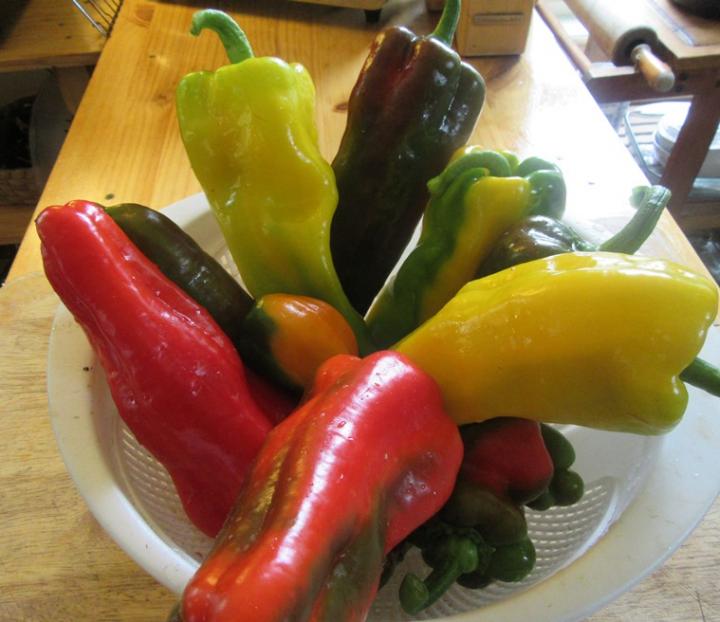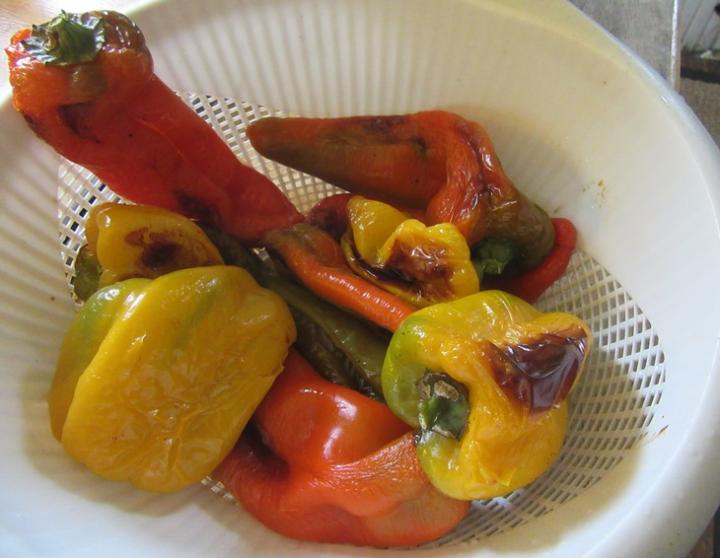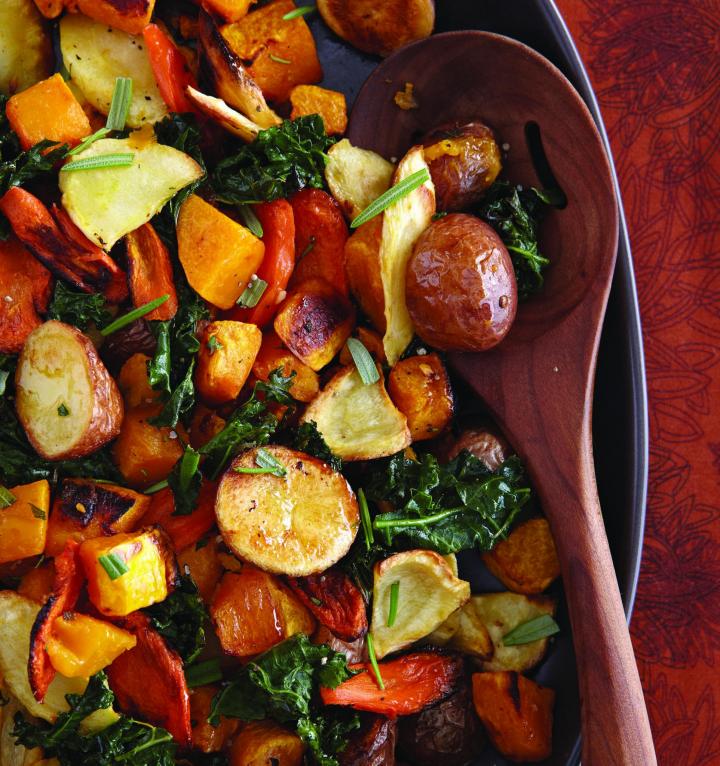I have one word for your fall enjoyment: Roast! If you live frugally and aspire to a (so-called) simpler, healthier way of living that includes eating seasonally, roast vegetables!
That’s right. When you have the oven on, turn it up a few notches, cut and lightly oil your best vegetables, and roast ‘em until they’re lightly browned.
Why Roast?
- Price: The cheap, always-available vegetables that become even less expensive during fall and winter.
- Taste: Cabbage, onions, potatoes, and carrots take on a depth of flavor and texture you won’t get with boiling, steaming, or baking. There’s no other way to describe them but yummier and more exotic. Roasting (“dry-heat cooking”) oxidizes (caramelizes) the sugars within the vegetable, which produces many new aromatic compounds that add extra flavor and complexity to the taste of the roasted vegetables.
- Health: Roasting may tempt even avowed vegetable-haters (and almost every family has one) into eating a lot more veggies.
- Versatile: Leftovers slide nicely into soups or casseroles. Or mash them into dips, dressings, and spreads. Many (think roasted beets, carrots, cabbage) also blend nicely into cold salads.
- Warming: Of course, you can roast vegetables any time of year, but I rarely take the time or even think about roasting during spring and summer, when leafy greens are abundant, and I rely turn on the oven because it overheats the kitchen. Coincidentally, cooler weather comes when we’re harvesting the storage onions, potatoes, winter squash, and sweet potatoes in sequence.
Roasting is also a great way to preserve. When my peppers begin maturing into beautiful reds, yellow, or orange hues, I roast them until their skins char, remove the skins and seeds, slice them into strips, and freeze them for winter chilis. (See peppers’ before and after photos, below.)


Roasting and Nutrition
Roasting (along with stir-frying) retains vitamins better than the most common method: boiling.
In general, any form of cooking degrades the vitamin content of foods. Although studies have shown that steaming lightly preserves more vitamins than other cooking methods, roasting is also a health way to go.
Acrylamides
When you cook at high temperatures, there is a natural chemical reaction between certain sugars and an amino acid (asparagine) in the food which forms acrylamide. This covers roasting, but also frying, baking, and broiling.
I’ll be writing more about acrylamides in the future, but meanwhile, experts suggest enjoying a wide variety of vegetables, served raw, steamed, baked, broiled, grilled… and roasted, and not worrying much about the acrylamides unless you subsist on a diet rich in french fries and fast/processed foods.
Some evidence suggests that regularly eating vegetables high in sulfur-containing compounds—onions, garlic, cabbage, broccoli, mustard greens, kale—can actually help mitigate the harmful effects of acrylamides in the diet.
Vegetable Roasting Tips
It’s easy to roast vegetables. Here are 5 steps:
- Roast in a hot oven, 425º to 475º. You’ll need to experiment to find the right temperature for the vegetables you like to roast.
- Cut vegetables into uniform pieces, so they’ll cook at the same rate.
- Place vegetables on a silicon baking sheet or piece of parchment to prevent them from sticking to the metal roasting pan. Don’t crowd them in the pan.
- Although the usual advice is to toss the vegetables with oil before roasting, you don’t need oil. Instead, toss with a bit of balsamic vinegar, lemon juice, or soy sauce.
- Use a thin spatula to turn the vegetables a couple of times as they roast. Go for a light browning. Charred vegetables develop a bitter taste, and the starchy ones will generate more acrylamides.

See a great recipe for Roasted Autumn Vegetables.












